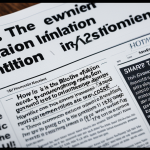UK Government Policies and Legal Framework for Digital Privacy
The digital privacy UK landscape is primarily shaped by the UK data protection laws, which center around the Data Protection Act 2018 and the UK’s adoption of the General Data Protection Regulation (GDPR) tailored post-Brexit. These laws aim to empower citizens by regulating how personal data is collected, stored, and processed, ensuring transparency and control.
The Data Protection Act complements GDPR enforcement by defining specific rules and exemptions suited to UK needs while maintaining high standards for protecting digital privacy. The legislation targets core concerns such as consent, data minimization, and individual rights like access and erasure of personal information. This framework addresses fears about misuse of data by requiring organizations to implement robust security and accountability measures.
Topic to read : What are the UK’s efforts in preserving cultural heritage sites?
Recent legislative changes include updates that clarify the government’s position on cross-border data flows and enhance powers for regulatory bodies to investigate breaches swiftly. These adjustments signify the government’s proactive stance in adapting to emerging challenges within this evolving digital environment. The sustained focus on clear, enforceable standards aims to build public confidence in the safety and privacy of their digital interactions.
Regulatory Bodies and Their Roles
The Information Commissioner’s Office (ICO) serves as the primary UK privacy watchdog, overseeing compliance with the UK data protection laws and GDPR enforcement. Its core responsibilities include monitoring how organizations handle personal data, investigating complaints, and enforcing penalties for breaches. By doing so, the ICO ensures that citizens’ digital privacy UK rights are upheld effectively.
Also to see : How is the UK government tackling inflation?
Collaboration is crucial for the ICO. It works closely with other government agencies, regulators, and international counterparts to harmonize enforcement and respond promptly to evolving threats. This cooperative approach strengthens overall digital privacy oversight and broadens regulatory reach.
For citizens concerned about misuse of their personal data, the ICO provides accessible complaint mechanisms. Individuals can report issues directly, triggering investigations or guidance for organizations to improve compliance. The ICO also carries out audits and can impose fines for noncompliance, signaling robust enforcement powers that deter violations and enhance accountability.
Through these functions, the ICO forms the backbone of digital privacy oversight in the UK, ensuring that digital privacy UK safeguards are not only legislated but actively maintained in practice.





